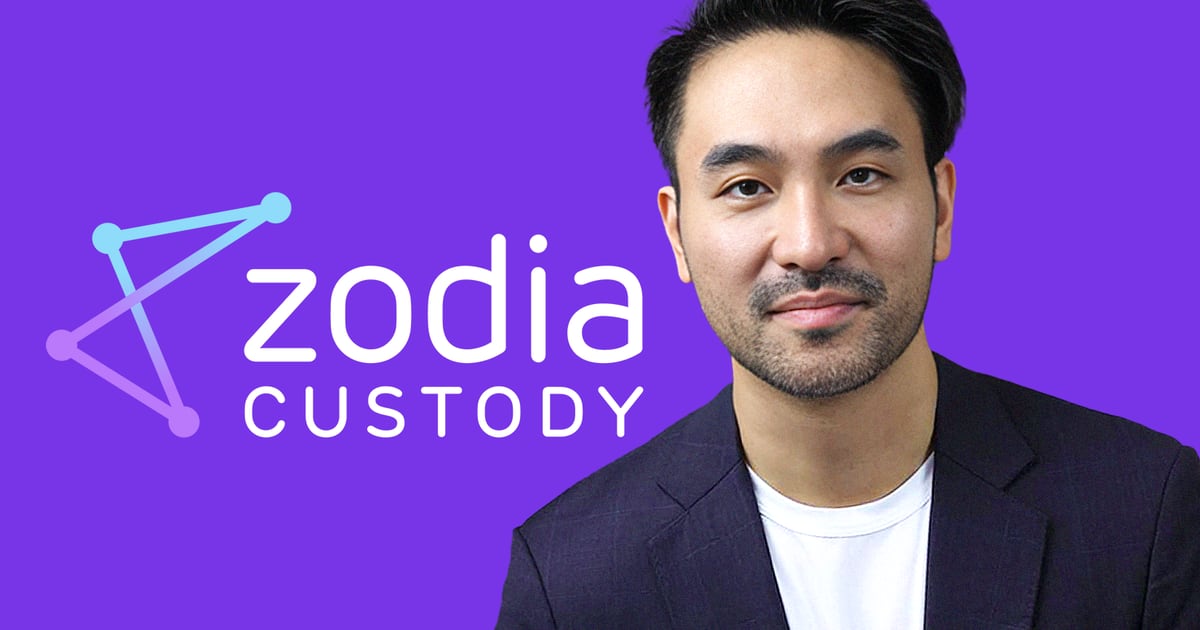Regulation
Why Hong Kong cryptocurrency custodians and exchanges are fighting over customer assets – DL News

- Kal Chan, CEO of Zodia Custody, says new rules are needed to separate custody services from exchanges.
- OSL executive director Gary Tiu countered that existing rules protect investors.
- The debate simmers as Hong Kong welcomes Bitcoin and Ether ETFs.
Cryptocurrency businesses typically bristle at regulation. But in Hong Kong, one group has repeatedly demanded it: cryptocurrency custodian companies.
“We want to be regulated,” said Kal Chan, CEO of Zodia’s Hong Kong unit. DL News.
Zodia Custody, which is backed by British banking giant Standard Chartered, is eager to work with regulators to develop specific regulations for cryptocurrency custodians, companies that look after clients’ digital assets.
And in particular, they want authorities to stop requiring cryptocurrency exchanges to manage exchange users’ assets through an “associated entity” and not be able to use third-party custodians.
The dangers of mixing
The problem, Zodia said, is that having exchanges deal with clients’ assets as well as their own funds creates the impression that they can be commingled.
This is taboo in capital markets, as exchanges should be neutral facilitators of buying and selling, not exploiting customer deposits for their own purposes.
“It’s not really a good practice to have exchanges that operate exchanges that also hold clients’ assets,” Chan said.
Indeed, asset misappropriation was one of the main reasons why FTX, the world’s second largest cryptocurrency exchange, failed in 2022.
Join the community to receive our latest stories and updates
The practice was also behind the collapse of Celsius, the cryptocurrency lender that went bankrupt the same year, according to lawsuits filed by U.S. officials. (Chan was Head of APAC Institutional Business at Celsius from November 2020 to September 2022.)
Of course, custodians will also benefit from a change in the rules, as it will bring them more customers.
“You need to be confident that wherever you store crypto assets, they will be safe.”
—Kal Chan, Zodia’s Guard
Specifically, custodians will be able to attract more institutional investors who are reluctant to hold their assets on platforms where transparency and controls are inadequate.
“Ultimately, if you hold crypto assets, you need a place to store them,” Chan said. DL News.
“You need to have confidence that wherever you store it, it will be secure and that you are working with a reputable player.”
“Hong Kong’s regulatory framework creates a standard of conduct where one did not previously exist.”
—Gary Tiu, OSL
Of course, not everyone agrees with Chan’s point of view.
Gary Tiu, Executive Director and Head of Regulatory Affairs at OSL, a Hong Kong-based licensed exchange, said: DL News it is not the regulations that create a duopoly, but the sign of a fully maturing market.
“Hong Kong’s regulatory framework creates a standard of conduct where no such standard existed before,” Tiu said.
If operators don’t meet these standards, it’s not the fault of regulators who are too harsh, he said. Additionally, regulations to protect assets held on exchanges already exist.
“Every year we have an independent audit of our financial statements, our compliance and our technology,” he said.
Regardless, Chan hopes there will be a consultation period later this year for depositories, a sign that regulators are seriously considering changes.
One of the advantages of custodial companies in Hong Kong is the difficulty in controlling the many exchanges that offer unregulated crypto trading in the city.
For more than a year, Hong Kong’s financial regulators have been pushing hard to get exchanges to apply for licenses.
Two platforms are registered: OSL and Hashkey. And a dozen others applied.
A duopoly?
Both OSL and Hashkey operate as exchanges and manage their clients’ funds.
Chan said the two constitute a duopoly when it comes to child care. For example, both companies retain the assets of all issuers of the recently released spot price. Bitcoin and Ether ETF as sub-custodians.
The six ETFs all share the same primary custodian – BOCI-Prudential, a subsidiary of the Bank of China.
This is something Zodia cannot do due to local regulations.
“We obviously have an ongoing dialogue with regulators about what best practices should be,” Chan said.
Tiu countered that current practices work very well for investors.
“These are actually very essential protections that market participants should expect from operators,” Tiu added. OSL is also subject to self-reporting obligations if it becomes aware of breaches in the segregation of client assets.
“We have a regulatory framework that ensures an adequate operating environment,” Tiu said.
Tiu added that while there is not yet a separate custodial licensing regime for crypto, there is no standalone custodial regime for traditional finance either.
“I think right now, at this stage of the market, the current regime is still the right one. As the technology and market continue to mature, we will evolve,” he added.
2,700 family offices
Until the regulatory framework changes, Chan said Zodia’s small Hong Kong-based team works primarily with family offices.
Hong Kong has about 2,700 single-family offices, according to a Deloitte study commissioned by the local government. Each office manages at least US$1.3 million, and 885 manage more than US$13 million.
The government has set a target of attracting 200 additional large family offices to the city by 2025 and has introduced a host of incentives, including tax breaks.
Growing interest
Family offices in Asia have already reported growing interest from their clients in investing in crypto assets to diversify their portfolios.
“We either help them enter the space and serve as a custodian or store some of the assets they already have,” he explained.
“A lot of these prospects, companies and institutions that are trying to get into this space, are comfortable enough to talk to us. They actually want to talk to us because we speak the same language,” he said.
“I think Hong Kong is becoming an increasingly important hub for the digital assets world, mainly in the more institutional side of things.”
Healthy development
Tiu added that he believed it would nevertheless be a “healthy development” to see more facets of the sector regulated in Hong Kong.
“I don’t think it’s as simple as introducing regulations and a lot of custodians will come into play,” he said, adding that the market may not be willing to pay for expensive infrastructure.
“If you try to introduce even more elements into the equation, we also have to ask the question of whether the business environment will support so many players,” he said.
Callan Quinn is DL News’ Hong correspondent. Do you have a story about crypto in Asia? Contact us at callan@dlnews.com.
Regulation
Crypto community gets involved in anti-government protests in Nigeria

Amid the #EndBadGovernanceInNigeria protests in Nigeria, a notable shift is occurring within the country’s cryptocurrency sector. As the general public demands sweeping governance reforms, crypto community leaders are seizing the opportunity to advocate for specific regulatory changes.
Rume Ophi, former secretary of the Blockchain Stakeholders Association of Nigeria (SiBAN), stressed the critical need to integrate crypto-focused demands into the broader agenda of the protests.
Ophi explained the dual benefit of such requirements, noting that proper regulation can spur substantial economic growth by attracting investors and creating job opportunities. Ophi noted, “Including calls for favorable crypto regulations is not just about the crypto community; it’s about leveraging these technologies to foster broader economic prosperity.”
Existing government efforts
In opposition to Ophi’s call for action, Chimezie Chuta, chair of the National Blockchain Policy Steering Committee, presents a different view. He pointed out The Nigerian government continued efforts to nurture the blockchain and cryptocurrency industries.
According to Chuta, the creation of a steering committee was essential to effectively address the needs of the crypto community.
Chuta also highlighted the creation of a subcommittee to harmonize regulations for virtual asset service providers (VASPs). With the aim of streamlining operations and providing clear regulatory direction, the initiative involves cooperation with major organizations including the Securities and Exchange Commission (SEC) and the Central Bank of Nigeria (CBN). “Our efforts should mitigate the need for protest as substantial progress is being made to address the needs of the crypto industry,” Chuta said.
A united call for support
The ongoing dialogue between the crypto community and government agencies reflects a complex landscape of negotiations and demands for progress.
While actors like Ophi are calling for more direct action and the inclusion of crypto demands in protest agendas, government figures like Chuta are advocating for recognition of the steps already taken.
As protests continue, the crypto community’s push for regulatory reform highlights a crucial aspect of Nigeria’s broader fight to improve governance and economic policies. Both sides agree that favorable regulations are critical to the successful adoption and implementation of blockchain technologies, signaling a potentially transformative era for Nigeria’s economic framework.
Read also : OKX Exchange Exits Nigerian Market Amid Regulatory Crackdown
Regulation
Cryptocurrency Regulations in Slovenia 2024

Slovenia, a small but highly developed European country with a population of 2.1 million, boasts a rich industrial history that has contributed greatly to its strong economy. As the most economically developed Slavic nation, Slovenia has grown steadily since adopting the euro in 2007. Its openness to innovation has been a key factor in its success in the industrial sector, making it a prime destination for cryptocurrency enthusiasts. Many believe that Slovenia is poised to become a powerful fintech hub in Europe. But does its current regulatory framework for cryptocurrencies support such aspirations?
Let’s explore Slovenia’s cryptocurrency regulations and see if they can propel the country to the forefront of the cryptocurrency landscape. My expectations are positive. What are yours? Before we answer, let’s dig a little deeper.
1. Cryptocurrency regulation in Slovenia: an overview
Slovenia is renowned for its innovation-friendly stance, providing a supportive environment for emerging technologies such as blockchain and cryptocurrencies. Under the Payment Services and Systems Act, cryptocurrencies are classified as virtual assets rather than financial or monetary instruments.
The regulation of the cryptocurrency sector in Slovenia is decentralized. Different authorities manage different aspects of the ecosystem. For example, the Bank of Slovenia and the Securities Market Agency oversee cryptocurrency transactions to ensure compliance with financial laws, including anti-money laundering (AML) and terrorist financing regulations. The Slovenian Act on the Prevention of Money Laundering and Terrorist Financing (ZPPDFT-2) incorporates the EU’s 5th Anti-Money Laundering Directive (5MLD) and aligns with the latest FATF recommendations. All virtual currency service providers must register with the Office of the Republic of Slovenia.
2. Cryptocurrency regulation in Slovenia: what’s new?
Several notable developments have taken place this year in the cryptocurrency sector in Slovenia:
July 25, 2024:Slovenia has issued a €30 million on-chain digital sovereign bond, the first of its kind in the EU, with a yield of 3.65%, maturing on 25 November 2024.
May 14, 2024:NiceHash has announced the first Slovenian Bitcoin-focused conference, NiceHashX, scheduled for November 8-9 in Maribor.
3. Explanation of the tax framework for cryptocurrencies in Slovenia
The Slovenian cryptocurrency tax framework provides clear guidelines for individuals and businesses. According to the Slovenian Financial Administration, the tax treatment depends on the status of the trader and the nature of the transaction.
- People:Income earned from cryptocurrencies through employment or ongoing business activities is subject to personal income tax. However, capital gains from transactions or market fluctuations are exempt from tax.
- Companies:Capital gains from cryptocurrency-related activities are subject to a 19% corporate tax. Value-added tax (VAT) generally applies at a rate of 22%, although cryptocurrency transactions that are considered as means of payment are exempt from VAT. Companies are not allowed to limit payment methods to cryptocurrencies alone. Tokens issued during ICOs must follow standard accounting rules and corporate tax law.
4. Cryptocurrency Mining in Slovenia: What You Need to Know
Cryptocurrency mining is not restricted in Slovenia, but income from mining is considered business income and is therefore taxable. This includes rewards from validating transactions and any additional income from mining operations. Both individuals and legal entities must comply with Slovenian tax regulations.
5. Timeline of the development of cryptocurrency regulation in Slovenia
Here is a timeline highlighting the evolution of cryptocurrency regulations in Slovenia:
- 2013:The Slovenian Financial Administration has issued guidelines stating that income from cryptocurrency transactions should be taxed.
- 2017:The Slovenian Financial Administration has provided more detailed guidelines on cryptocurrency taxation, depending on factors such as the status of the trader and the type of transaction.
- 2023:The EU adopted the Markets in Crypto-Assets (MiCA) Regulation, establishing a uniform regulatory framework for crypto-assets, their issuers and service providers across the EU.
Endnote
Slovenia’s approach to the cryptocurrency sector is commendable, reflecting its optimistic view of the future of cryptocurrencies. The country’s balanced regulatory framework supports cryptocurrency innovation while protecting users’ rights and preventing illegal activities. Recent developments demonstrate Slovenia’s commitment to continually improving its regulatory environment. Slovenia’s cryptocurrency regulatory framework sets a positive example for other nations navigating the evolving cryptocurrency landscape.
Read also : Hong Kong Cryptocurrency Regulations 2024
Regulation
A Blank Sheet for Cryptocurrencies: Kamala Harris’ Regulatory Opportunity

photo by Shubham Dhage on Unsplash
As the cryptocurrency landscape continues to evolve, the need for clear regulation has never been more pressing.
With Vice President Kamala Harris now leading the charge on digital asset regulation in the United States, this represents a unique opportunity to start fresh. This fresh start can foster innovation and protect consumers. It can also pave the way for widespread adoption across industries, including real estate agencies, healthcare providers, and online gaming platforms like these. online casinos ukAccording to experts at SafestCasinoSites, these platforms come with benefits such as bonus offers, a wide selection of games, and various payment methods. Ultimately, all this increase in adoption could propel the cryptocurrency market forward.
With this in mind, let’s look at the current state of cryptocurrency regulation in the United States, a complex and confusing landscape. Multiple agencies, including the Securities and Exchange Commission (SEC), the Commodity Futures Trading Commission (CFTC), and the Financial Crimes Enforcement Network (FinCEN), have overlapping jurisdictions, creating a fragmented regulatory environment. This lack of clarity has stifled innovation as companies are reluctant to invest in the United States, fearing regulatory repercussions. A coherent and clear regulatory framework is urgently needed to realize the full potential of cryptocurrencies in the United States.
While the US struggles to find its footing, other countries, such as Singapore and the UK, are actively looking into the cryptocurrency sector by adopting clear and supportive regulatory frameworks. This has led to a brain drain, with companies choosing to locate in more conducive environments.
Vice President Kamala Harris has a unique opportunity to change that narrative and start over. Regulation of cryptocurrencies. By taking a comprehensive and inclusive approach, it can help create a framework that balances consumer protection with innovation and growth. The time has come for clear and effective regulation of cryptocurrencies in the United States.
Effective regulation of digital assets is essential to foster a safe and innovative environment. The key principles guiding this regulation are clarity, innovation, global cooperation, consumer protection, and flexibility. Clear definitions and guidelines eliminate ambiguity while encouraging experimentation and development to ensure progress. Collaboration with international partners establishes consistent standards, preventing regulatory arbitrage. Strong safeguards protect consumers from fraud and market abuse, and adaptability allows for evolution in response to emerging trends and technologies, striking a balance between innovation and protection.
The benefits of effective cryptocurrency regulation are multiple and far-reaching. By establishing clear guidelines, governments can attract investors and mainstream users, driving growth and adoption. This can, in turn, position countries like the United States as global leaders in fintech and innovation. Strong safeguards will also increase consumer confidence in digital assets and related products, increasing economic activity.
A thriving crypto industry can contribute significantly to GDP and job creation, which has a positive impact on the overall economy. Furthermore, effective regulation has paved the way for the growth of many businesses such as tech startups, online casinos, and pharmaceutical companies, demonstrating that clear guidelines can open up new opportunities without stifling innovation. This is a great example of how regulation can allay fears of regressive policies, even if Kamala Harris does not repeal the current progressive approach. By adopting effective regulation, governments can create fertile ground for the crypto industry to thrive, thereby promoting progress and prosperity.
Regulation
South Korea Imposes New ‘Monitoring’ Fees on Cryptocurrency Exchanges

Big news! The latest regulatory changes in South Korea are expected to impact major cryptocurrency exchanges like Upbit and Bithumb. Under the updated regulations, these platforms will now have to pay monitoring fees, which could cause problems for some exchanges.
Overview of new fees
In the latest move to regulate cryptocurrencies, the Financial Services Commission announced on July 1 the revised “Enforcement Order of the Act on the Establishment of the Financial Services Commission, etc.” update “Regulations on the collection of contributions from financial institutions, etc.” According to local legislation newsThe regulations require virtual asset operators to pay supervisory fees for inspections conducted by the Financial Supervisory Service starting next year. The total fees for the four major exchanges are estimated at around 300 million won, or about $220,000.
Apportionment of costs
Upbit, which holds a dominant market share, is expected to bear more than 90% of the total fee, or about 272 million won ($199,592) based on its operating revenue. Bithumb will pay about 21.14 million won ($155,157), while Coinone and GOPAX will contribute about 6.03 million won ($4,422) and 830,000 won ($608), respectively. Korbit is excluded from this fee due to its lower operating revenue.
Impact on the industry
The supervision fee will function similarly to a quasi-tax for financial institutions subject to inspections by the Financial Supervisory Service. The new law requires any company with a turnover of 3 billion won or more to pay the fee.
In the past, fees for electronic financial companies and P2P investment firms were phased in over three years. However, the taxation of virtual asset operators has been accelerated, reflecting the rapid growth of the cryptocurrency market and increasing regulatory scrutiny.
Industry reactions
The rapid introduction of the fee was unexpected by some industry players, who had expected a delay. Financial Supervisory Service officials justified the decision by citing the creation of the body concerned and the costs already incurred.
While larger exchanges like Upbit and Bithumb can afford the cost, smaller exchanges like Coinone and GOPAX, which are currently operating at a loss, could face an additional financial burden. This is part of a broader trend of declining trading volumes for South Korean exchanges, which have seen a 30% drop since the new law went into effect.
-

 Regulation11 months ago
Regulation11 months agoRipple CTO and Cardano founder clash over XRP’s regulatory challenges ⋆ ZyCrypto
-

 Regulation10 months ago
Regulation10 months agoNancy Pelosi Considers Supporting Republican Crypto Bill FIT21 – London Business News
-

 Videos11 months ago
Videos11 months agoCryptocurrency News: Bitcoin, ETH ETF, AI Crypto Rally, AKT, TON & MORE!!
-

 Regulation11 months ago
Regulation11 months agoBitcoin’s future is ‘bleak’ and ripe for regulation, says lead developer
-

 News8 months ago
News8 months agoAave Price Increases Following Whales Accumulation and V3.1 Launch
-

 Regulation8 months ago
Regulation8 months agoSouth Korea Imposes New ‘Monitoring’ Fees on Cryptocurrency Exchanges
-

 Regulation8 months ago
Regulation8 months agoA Blank Sheet for Cryptocurrencies: Kamala Harris’ Regulatory Opportunity
-

 Regulation8 months ago
Regulation8 months agoCryptocurrency Regulations in Slovenia 2024
-

 News11 months ago
News11 months agoThe trader earned $46 million with PEPE after reaching a new ATH
-

 Regulation10 months ago
Regulation10 months agoCrypto needs regulation to thrive: Tyler Cowen
-

 Blockchain11 months ago
Blockchain11 months agoSolana ranks the fastest blockchain in the world, surpassing Ethereum, Polygon ⋆ ZyCrypto
-

 Blockchain10 months ago
Blockchain10 months agoSolana Surpasses Ethereum and Polygon as the Fastest Blockchain ⋆ ZyCrypto

















